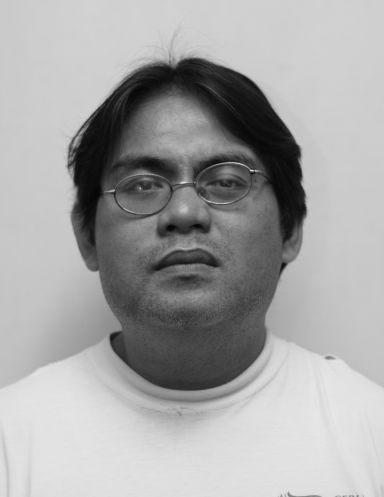
CAPILLAS
As I wrote this, the weather remained tolerably warm for the most part in Metro Cebu, but local news broadcasts had long reminded the public about the forecast of the state weather bureau Pagasa on the hot summer season ahead.
As if Pagasa’s reminder isn’t enough, the drying up of faucets in every Metro Cebu household every morning for the past few weeks should serve as a warning for residents to start storing up on precious water at least until the rainy season in June arrives.
I could only hope that this year’s dry season isn’t as brutal as the same period last year when the El Niño heat wave was at its worst and Metro Cebu’s water supply was so depleted that people had to go to hotels and their offices for a quick bath.
Where I stayed in, the faucets would only drip water at 3 a.m. and it would take two hours at least to fill up one small drum. Don’t get me started on the time it takes to fill one medium-sized drum — suffice it to say it would be halfway filled by the time it took me to finish lunch.
And — my apologies to those eating their meals at this time — I bet that personnel and officials of the Metro Cebu Water District (MCWD) never had to see a toilet bowl that wasn’t flushed for a day or two since there wasn’t any water to use other than the stagnant water outside.
It peeved me to no end when the MCWD failed to address the problem, simply blaming it on the El Niño, and Metro Cebu was only saved by the arrival of the rainy season. Even then, it took until September for the faucets to start working normally again.
Pagasa said the dry, hot season would start next Tuesday, but even with the scattered rain showers of the past few days, the faucets have begun drying up and the MCWD appears helpless to address it, perhaps chalking it up anew to the weather.
If the Metro Cebu area is feeling the pain of a lower water supply, one can only imagine the plight of residents in upland barangays who need to water their farms and feed their livestock. I hope City Hall does a better job providing water to these households.
In the meantime, households and offices will have to resume stocking up on water until the dry season passes and the rains come again. In fact, it would probably be better if we make it a habit of storing water sourced not only from the faucets but from rainfall.
Cebu City Hall should campaign and even provide incentives for households and barangays that can set up their own rainfall catchment systems so they can have a steady supply of water all year round.
Maybe former councilor Nestor Archival can lead the campaign along with former councilor Nida Cabrera if she can spare the time after being kept busy dealing with the city’s garbage problem.
* * *
So much had been said about the strip search conducted by agents of the Philippine Drug Enforcement Agency (PDEA) on inmates at the Cebu Provincial Detention and Rehabilitation Center (CPDRC), much of it negative and critical, that I had to look at previous reports about the first Operation Greyhound done in cooperation with the military to see if the inmates were also strip-searched at the time.
As far as I can recall, the male inmates took off their shirts but were allowed to keep their shorts on while they were told to squat as police and army personnel inspected their cells.
While a lot of people ventilated their outrage and disappointment over the incident, including CDN columnist Nestor Ramirez (“Operation Greyhound and Male Circumcision” in last Wednesday’s issue), the question of how to effectively conduct inspections wasn’t raised or adequately answered.
In arguing against strip searches, one points to the uselessness of installing security cameras at a cell occupied by suspected drug lord Alvaro Alvaro, who still managed to secure three cell phones despite those extra pair of eyes.
How he managed to do that can be answered by the fact that drug lords earn hundreds of thousands of pesos in profit a week. It’s not hard to imagine them promising a portion of that to the jail guards who may earn minimum salary but wouldn’t mean a few hundred thousand bucks before payday.
That fact alone should illustrate to the public the daily challenge of not only securing the inmates but stopping the flow of drugs and profits generated by its illegal sales to the detained drug lords and their lackeys in prison.
Disclaimer: The comments uploaded on this site do not necessarily represent or reflect the views of management and owner of Cebudailynews. We reserve the right to exclude comments that we deem to be inconsistent with our editorial standards.
